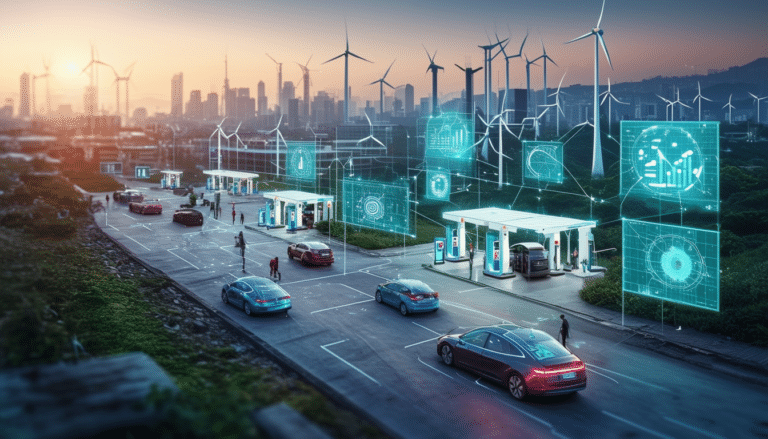The Government gives the green light to the revision of the National Integrated Energy and Climate Plan 2023-2030, key to the economic, social and environmental development of Spain and its impact on the modernization of the production model.
The recent approval of the Government for the review of the Integrated National Energy and Climate Plan 2023-2030 marks a significant milestone in Spain’s economic, social, and environmental development strategy. This plan not only aims to strengthen the transition towards a more sustainable energy model but also stands as a fundamental pillar for the modernization of the productive fabric of the country. Through investments in renewable energies and improving energy efficiency, the PNIEC positions itself as a key tool to face contemporary challenges, thus promoting a more dynamic and resilient future.
The Government gives the green light to the revision of the Integrated National Energy and Climate Plan 2023-2030
The recent approval of the Royal Decree that updates the Integrated National Energy and Climate Plan (PNIEC) 2023-2030 by the Spanish Government marks a crucial step towards the ecological transition of the country. This plan aims not only for the decarbonization of the economy but also for the creation of a framework that guarantees economic, social, and environmental development, which is vital for modernizing Spain’s productive model.
A significant advance towards the ecological transition
The update of the PNIEC 2023 is presented as a response to the challenges posed by climate change and the need for sustainable growth. This new document reinforces previous commitments and aligns with the ambitions established by the European Union, exceeding the initial targets in terms of reducing Greenhouse Gas (GHG) emissions.
Strengthening the economic framework
The PNIEC 2023 plans to mobilize a total investment of 308 billion euros by 2030, with a considerable focus on renewable energies and energy efficiency. This investment is expected to not only increase the GDP by 3.2% but also generate between 363,000 and 560,000 jobs, thus promoting a positive impact on the local and national economy.
Ambitious climate objectives
The revision of the PNIEC involves an increase in the GHG emissions reduction target from 23% to 32% by 2030. This increase in ambition reflects the urgency of adopting a proactive approach to the effects of climate change and highlights the importance of renewable energy in the country’s strategy.
Development of the industrial value chain
Within this framework, a clear boost to the industrial value chain is anticipated, creating new business and employment opportunities in sustainability-related sectors. The energy dependence, which stood at 73% in 2019, is projected to fall to 50% by 2030, thanks to initiatives that promote the generation of indigenous energy.
Social benefits and cost reduction
The implementation of energy efficiency measures will have a direct impact on the reduction of energy expenses for households, which could decrease from 7.8% of their income in 2019 to 5.7% in 2030. This benefit will be especially significant for low-income families, improving their purchasing power and quality of life.
Commitment to environmental sustainability
The update of the PNIEC also includes ambitious targets regarding environmental sustainability. It is estimated that premature deaths associated with pollution will be halved thanks to the reduction of pollutants in the air. This represents a significant step towards protecting public health and improving air quality.
Modernization of the productive model
Ultimately, the updated plan will contribute to the modernization of the productive model, integrating various areas into the economy such as electrification, sustainable mobility, and digitalization, thus paving the way for a more competitive and resilient economic future.
Impact of the revision of the PNIEC 2023-2030 in Spain
The recent approval of the revision of the Integrated National Energy and Climate Plan (PNIEC) 2023-2030 by the Government represents a significant step towards the modernization of the Spanish productive model. This plan not only addresses the need to improve sustainability and reduce pollution, but also fosters a new paradigm of economic and social development, aligned with the objectives of the European Union.
One of the key areas of the PNIEC consists of the energy transition, which seeks to reduce dependence on fossil fuels and promote the use of renewable energies. This transformation will generate investment opportunities, with a total estimated at 308 billion euros, with the expectation of creating up to 560,000 jobs in various industries. The electrification of the economy and the increase in the capacity to produce clean energies are crucial to achieving the established climate targets.
The plan also addresses energy savings and efficiency, projecting a significant reduction in household energy expenses, especially for those with lower incomes. By lowering the average energy spending from 7.8% to 5.7% of income, families are expected to have more disposable income, improving their quality of life.
In terms of public health, the review of the PNIEC promises to cut premature deaths related to air pollution by half due to a more rigorous approach to improving air quality. Furthermore, the integration of various environmental policies will strengthen territorial cohesion and promote social justice in the transition towards a more sustainable and equitable productive model.





